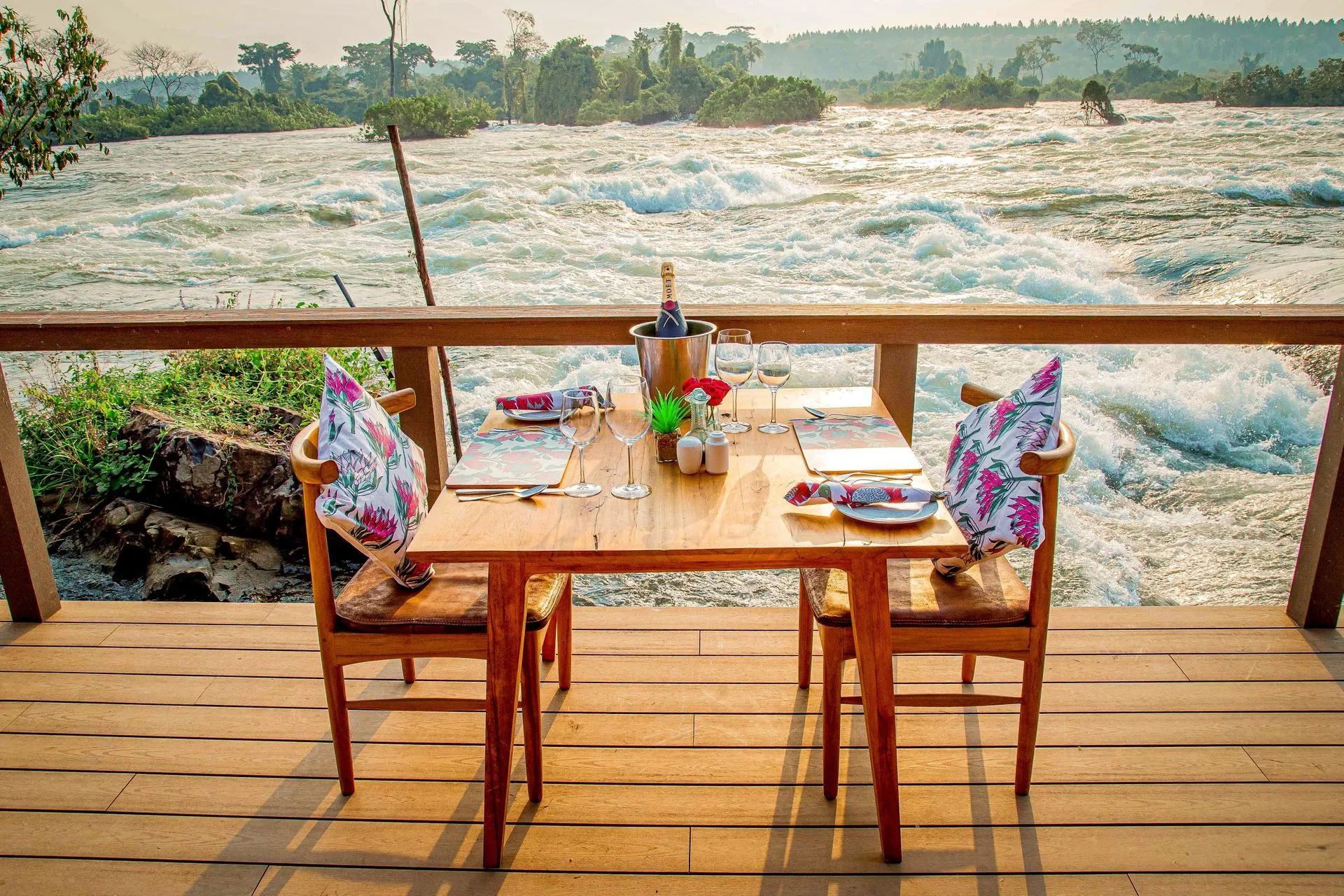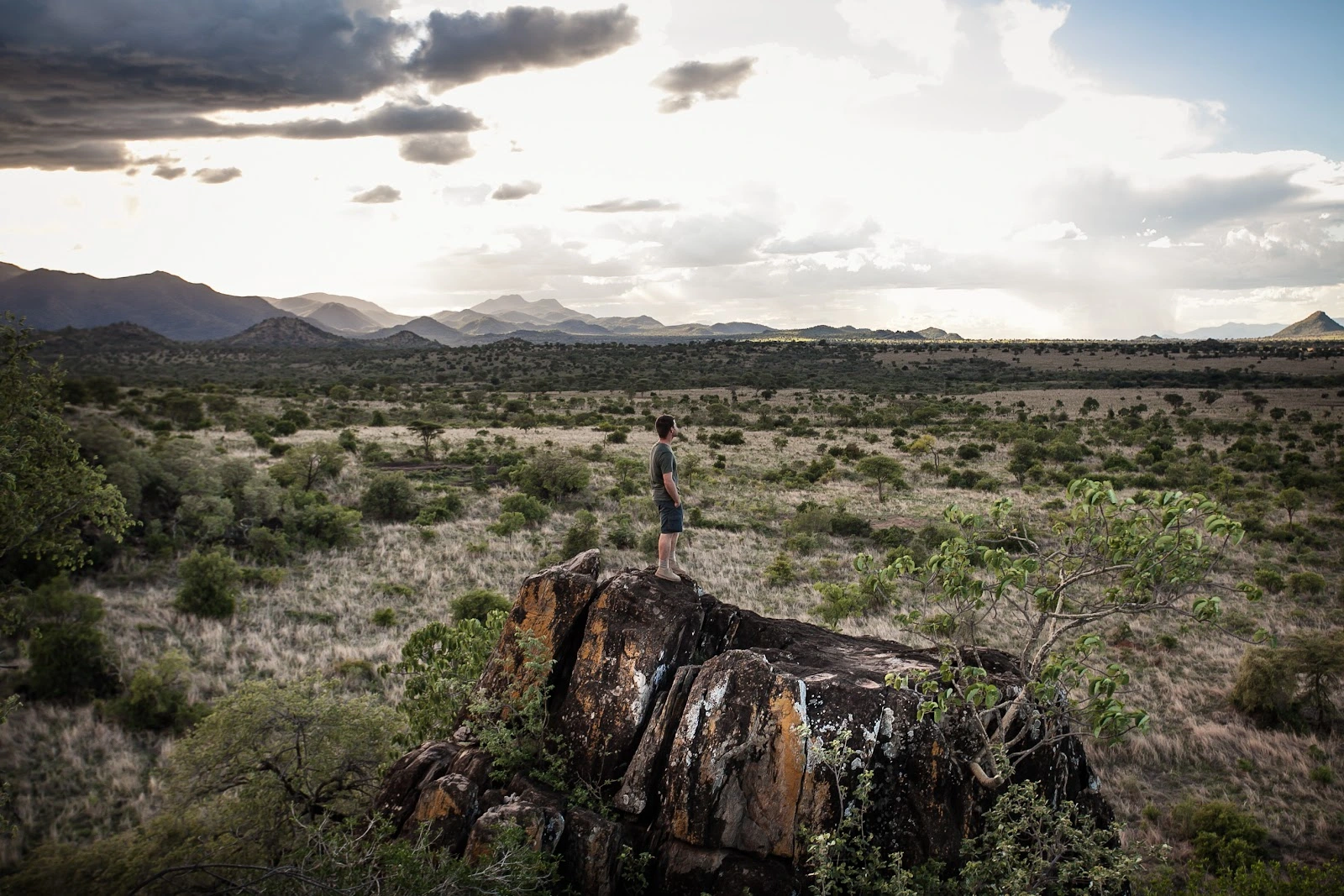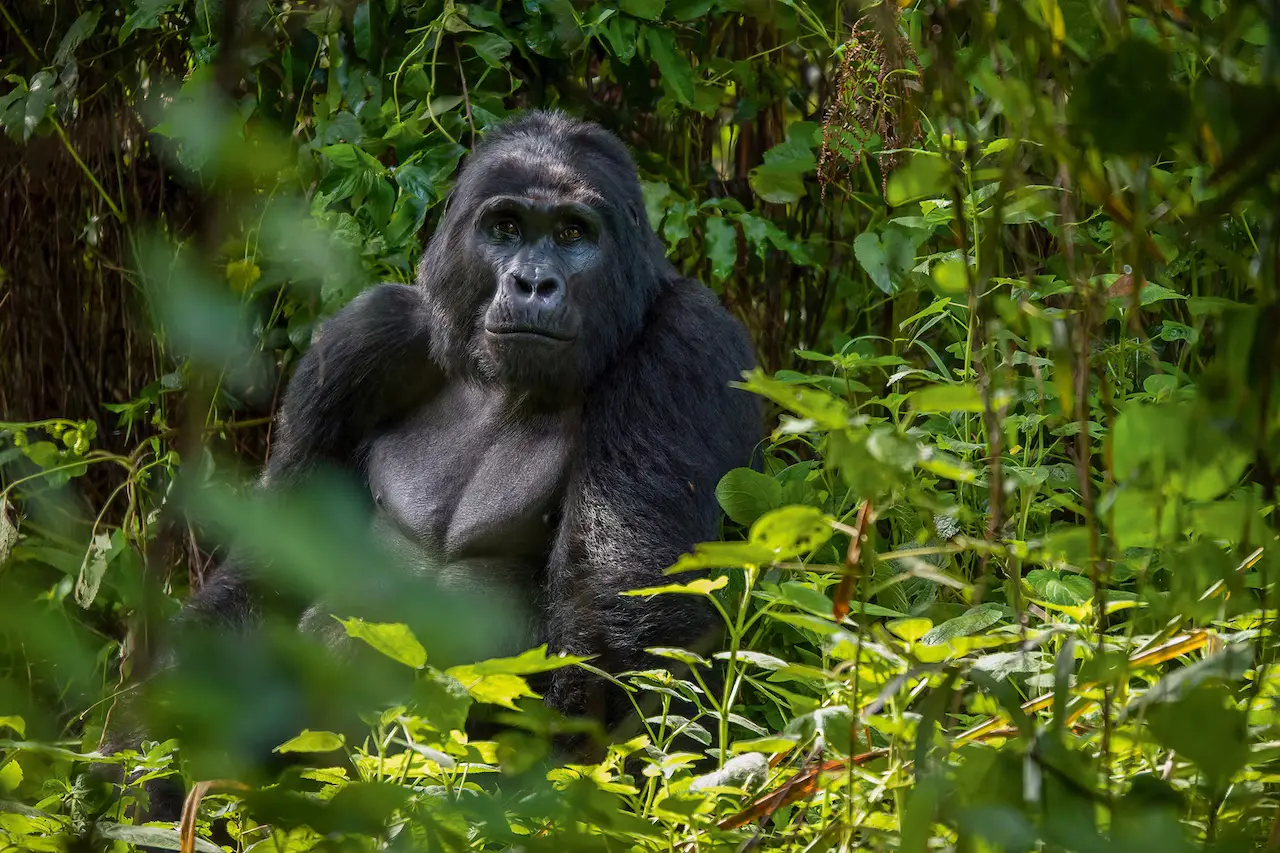If you’re on the hunt for Uganda travel advice, you’ve come to the right place—a guide written by a local who has extensively explored the Pearl of Africa. This guide provides the most current information, both before your trip and during your safari in Uganda. I have pulled together this information guide as a good introduction to what to expect on the ground in Uganda. When you book your safari with Greenway Nature Tours, you’ll receive more detailed information tailored to each destination on your itinerary. There’s a lot to cover in this blog, so let’s get started!
When you visit a new country —or even return to a country you don’t know well for the second or third time, it’s impossible to avoid anxiety.
However, you can reduce the amount of this anxiety that consists of utter fear, and focus more on the giddy butterflies you feel fluttering around your stomach as your plane lands.
Keep reading this blog to familiarize yourself with the Uganda travel advice I’m about to share.
In general, I’d say Uganda is a fairly easy country to explore.
People are friendly; things work (more or less—certainly for a developing) and there are other travelers in the majority of places you visit, most of whom were probably not so fortunate to happen upon a priceless resource like that.

The topic of when to visit Uganda used to be a simple one to answer, but thanks to climate change (and some other…seasonal phenomena) it’s just as easy.
Generally, the dry months from December to January and June to September are the most favorable in terms of weather.
But if you’re looking to explore Uganda with fewer tourists, consider visiting in April-May or November.
During these months, you’ll find fewer crowds, and some lodges may offer lower rates for the off-season. Expect more rainfall, especially in areas like Entebbe and the southwestern part of the country.
However, rain patterns are unpredictable and may come earlier or later than anticipated.
While the rains can be heavy, they are usually brief, followed by sunshine.
This is a great time to experience lush greenery and the delightful fragrance of blooming flowers.
However, keep in mind that this is not the ideal period for summiting Mount Elgon or the Rwenzori Mountains.
If you’re planning on primate trekking, be aware that rainforests are naturally wet and cooler compared to other areas of the country.
Regardless of whether it’s the dry or wet season, you’re likely to experience rain during your gorilla or chimpanzee trek. Be sure to pack water-resistant clothing, forget about trying to look stylish, and focus on enjoying the adventure!

Yes, most Ugandans speak English, particularly in tourist areas. English is Uganda’s official language and is taught in both primary and secondary schools.
In fact, Forbes Magazine ranked Uganda as the best English-speaking country in Africa in 2024. However, there are a few things to keep in mind:
The question of how many days to spend in Uganda is a bit of a debated topic, but generally, most travelers stay for about 5 days to 2 weeks.
If you’re taking a standalone trip to Uganda, you will probably spend about 2 weeks in Uganda, and maybe a bit longer.
Many consider 10 days to be the perfect length for a Uganda safari, as it allows you to explore the main national parks in Uganda’s western circuit at a comfortable pace.
On the other hand, some visitors prefer shorter stays in Uganda, especially if they are combining it with travel to other East African countries. This approach helps avoid repetition and ensures a fresh experience wherever possible.

Embassy travel reports on developing countries often tend to be overly cautious.
In the case of Uganda, it’s unfortunate that specific incidents are highlighted without considering the local context, which can create a distorted perception of the safety situation.
Based on my personal and professional experiences in Uganda, I have always found it to be a safe country to visit, with friendly locals and a welcoming environment.
While Uganda has experienced a few terrorist attacks in the western region, these were isolated incidents carried out by the ADF, a rebel group operating from Eastern DRC, fueled by the conflict and instability along the Uganda-Rwanda and DRC borders.
Although these attacks are tragic, it’s important to keep them in perspective.
Many countries, including those in Europe, have faced similar attacks. Does that mean we should avoid places like Paris, Brussels, or Prague?
Comparing safety in Uganda to the USA, many US cities are plagued by gang violence, a situation that doesn’t exist in Uganda.
Yet, despite these issues, the US is not seen as unsafe for travel, and embassies don’t issue travel advisories against visiting the US.
However, when an attack occurs near the DRC border, embassies often advise against traveling to Uganda as a whole.
It’s important to recognize that terrorism and sensationalized media coverage shouldn’t discourage people from pursuing their passion for travel.
Tourism is often one of the hardest-hit sectors when people avoid destinations, and many locals depend on it for their livelihoods.
Several vaccinations are recommended and/or required before traveling to Uganda.
It is advisable to have a travel medicine consultation in your home country before your visit.
A yellow fever vaccination is mandatory for all travelers aged 1 year and older.
It is also recommended to get immunized against DTP (Diphtheria, Tetanus, and Polio) and Hepatitis A.
In addition to using mosquito repellent, we strongly recommend taking malaria prophylactics (preventive medication).

Generally, a visa is required to enter Uganda, unless you are from one of the countries that are exempt.
If you’re not from a visa-exempt country, you will likely need to apply for a tourist visa, which is valid for 3 months from the application date.
The application must be completed online through Uganda Immigration, as visas on arrival are no longer available.
If you’re planning to visit Uganda, Rwanda, and Kenya, you will need an East African tourist visa, which permits travel to all three countries.
Uganda is considered an affordable safari destination. While park entrance fees can be paid by credit card, most other expenses during your trip will need to be paid in cash.
Fuel prices fluctuate, so it’s best to check current rates online for the most accurate information.
Dining out in Uganda is inexpensive, although meals at lodges inside safari parks tend to be pricier, with a three-course meal costing around 15-25 USD per person.
Accommodation in Uganda is relatively affordable compared to popular safari destinations like Tanzania, Kenya, and South Africa, offering a good balance of price and quality.
Hotel rates generally fall into the following ranges:
Tipping in Uganda is based on your level of satisfaction, but even a small gesture of gratitude is always appreciated.
If you’re pleased with the service of your safari guide, you might consider tipping around $10 per day.
For upmarket hotels and restaurants, a tip of 5-10% is typically appropriate.

In Uganda, the plug type is G, featuring three rectangular pins arranged in a triangular pattern, similar to the UK.
The country uses a 240V supply voltage and 50Hz frequency. Be sure to bring international plug adapters with you.
When traveling, it’s ideal to have an unlocked international quad-band phone that isn’t tied to a specific network or bandwidth, allowing you to use any SIM card.
You can either buy an international plan from your current provider or purchase a local SIM card upon arrival.
Uganda has good network coverage, and you can easily buy airtime and data bundles from a variety of sources, including street vendors, kiosks, mobile network provider stores, or even through apps on your phone.
It’s more cost-effective to go on safari with a friend or a group. Solo safaris can be pricey due to surcharges, but traveling with others allows you to share both the costs and the enjoyment of the experience, making it more affordable and fun.
If you’re planning to go gorilla trekking, you’ll need to obtain a gorilla trekking permit, which has limited availability, so it’s recommended to book early.
The permit allows you to spend a specific amount of time with a gorilla family.
Similarly, chimpanzee tracking also requires a permit, so be sure to secure it in advance to guarantee availability.
The minimum age for gorilla trekking is 15 years, while for chimp trekking, it is 12 years.
Some national parks offer alternative activities for children under 12, so they can stay occupied while their parents go chimp trekking.
Gorilla permits are priced at $800, and chimp trekking costs range from $50 to $300, depending on the location you choose to visit.
Gorilla trekking and other primate tracking activities involve hiking through dense forests and challenging terrain, so it’s important to be physically fit.
Be sure to evaluate your fitness level and choose a trek that aligns with your abilities.
If you’re unwell or have a cold, you won’t be allowed to participate in gorilla or chimp trekking to protect the health of the gorillas and chimpanzees.
You may also like; how difficult is gorilla trekking?
Respect local customs and traditions.
Always ask for permission before taking photos of local people, and make sure to follow any cultural guidelines given by your guides.
Make sure you have comprehensive travel insurance that covers medical emergencies, trip cancellations, and other unforeseen circumstances.
Hotels, lodges, and guesthouses in urban areas and popular tourist destinations usually provide Wi-Fi.
The quality of the connection can vary, but it is generally available for guests.
While internet access is typically reliable in urban areas, it may be more limited in remote or rural regions.
In some national parks, you may encounter weak or no signal, so it’s a good idea to confirm with us about internet availability in those areas.
While you can withdraw a limited amount of cash per day from ATMs in larger cities, opportunities to access cash are scarce once you’re on safari in Uganda.
Most restaurants and lodges accept card payments (Visa, MasterCard, or Amex), with Visa being the most widely accepted.
It’s a good idea to bring some cash, as transactions can sometimes be delayed due to poor network connectivity, especially in remote lodge locations.
If needed, you can find foreign currency exchange shops (Forex bureaux) in Kampala and Entebbe to get local currency.
I’m confident you’ve gotten all the Uganda travel advice you were seeking—and probably some you didn’t imagine you’d need. From ordinary concerns about language issues to tangible questions about safety, a trip to Uganda is as much about addressing very practical concerns as it is about unforgettable gorilla trekking adventures in Bwindi Impenetrable Forest or white water rafting on the world’s longest river. Want personalized help planning your Uganda adventure? Hire us to create a custom Uganda itinerary!
Since 2016 our tour company offers 4×4 car hire, safari itineraries with accommodation and guided tours for group and the independent traveler in East African countries of Uganda, Rwanda, Kenya and Tanzania.
+256 703740870
+256 704 324 972
info@greenwaynaturetours.com